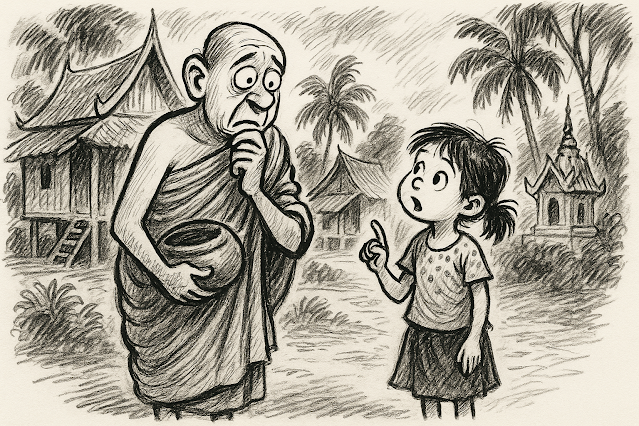End of a Stick
In the tranquil Chiang Mai hills, there was a hot-tempered Thai monk named Preecha. He was known for his scolding sermons on the theory of karma. He used to rebuke villagers regularly for being greedy and warning them against their actions. Having delivered a particularly stern sermon in the afternoon, he returned to his plain kuti (hut) and found a little girl waiting there for him.
Her name was Mali, the daughter of a farmer who had taken his own life months ago. She had heard Preecha say that suffering was the result of past deeds, and now she asked him plainly, “If my father suffered because of his karma, is my pain also part of his?”
Preecha was silent.
That evening, he walked alone into the bamboo forest behind the temple, disturbed by Mali’s question. There he met Luang Po, the oldest monk in the monastery, sitting quietly near a stream.
“I spoke of karma,” Preecha confessed. “But the girl’s grief—why should she carry it?”
Luang Po didn’t respond directly. Instead, he picked up a bamboo stick lying nearby and handed it to Preecha. “If you pick up one end of a stick, you also pick up the other,” he said calmly.
Preecha stared at the stick. The old monk smiled. “When we speak of cause and effect, we must remember they are one thing. Our actions, our words—they are not separate from their consequences. If you preach about karma, you also carry the duty to ease the burdens that come with it.”
From that day, Preecha’s sermons softened. He still taught about karma, but now he also walked the village paths, listening to people’s sorrows, helping mend what could be mended. He had picked up the stick—and now, finally, he understood the weight on both ends.

